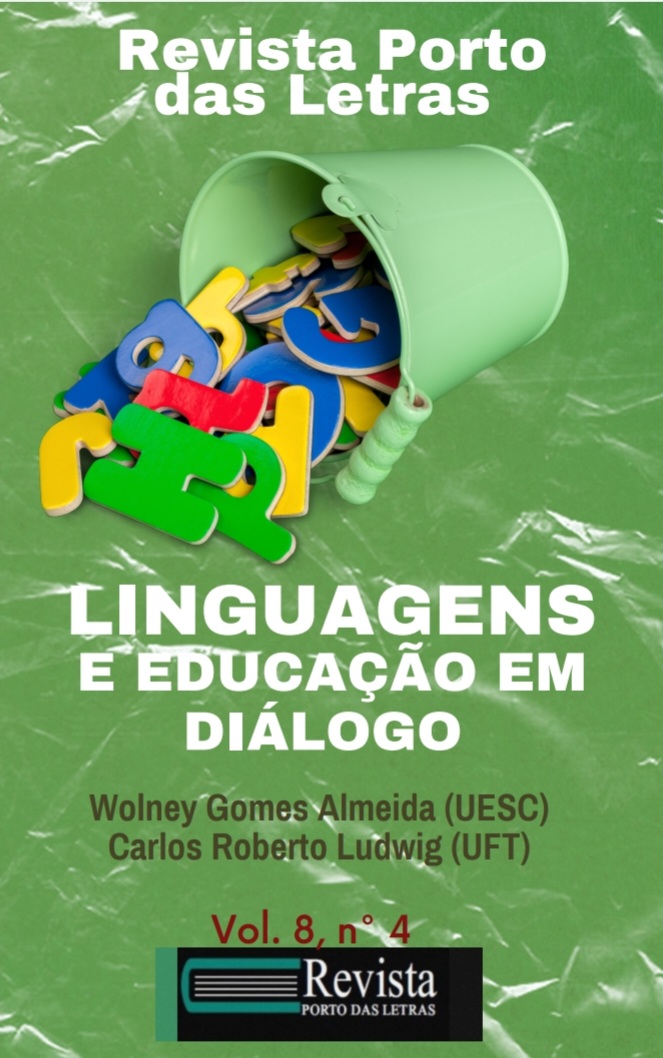MOTIVAÇÃO E APRENDIZAGEM DE LÍNGUA INGLESA: O CASO DE UMA ESCOLA RURAL DO ESTADO DO TOCANTINS
Keywords:
Motivação; Escola rural; Língua Inglesa; Tocantins.Abstract
Residents of rural areas are often stigmatized because they live in an underprivileged local to the urban context. The characterization of this environment and the socioeconomic context of learners have great influence on the motivational factor of a Foreign Language. Textbooks of English often indicate a different language and culture from the one used in their localities of origin. This paper has as main objective to analyze the beliefs of students about the learning of English in a rural school. In particular, we investigate the motivational factors (or lack thereof) in learning the English Language. In a quantitative-qualitative methodology questions are raised about the learners through two questionnaires. Thus, the research sought to identify the real learning needs from the students' point of view and what they believe to be important for the teaching of the English Language. Our work has theoretical foundation in the works of Harmer (1985, 2009), Vygotsky (1993), Brown (2001) among others.
References
BRASIL. Lei 9.394 de 20 de dezembro de 1996. Estabelece as Diretrizes e Bases da Educação Nacional. Brasília: Diário Oficial da União, 20-12-96
_________(2007). Miolo1 A Educação no Brasil Rural_29_05.pmd – Inep. Disponível em:http://portal.inep.gov.br/documents/186968/484184/A+educa%C3%A7%C3%A3o+no+Brasil+rural/6f20b4f1-a40e-4d78-baea-a1f63f191041?version=1.3. Acesso em: 11 jun. 2014.
_________ (2006). Panorama da Educação do Campo - Portal do MEC. Disponível em:
portal.mec.gov.br › arquivos › pdf › educacaodocampo Acesso em: 11 jun. 2014.
_________. Parâmetros Curriculares Nacionais. Brasília: MEC/SEF, 1998.
BROWN, H. Douglas. Teaching by principles: and interactive approach to language pedagogy. 2 nd ed. San Francisco: State University, 2001.
CHARLOT, Bernard. Da relação com o saber: elementos para uma teoria. Porto Alegre: Artmed, 2000.
DÖRNYEI, Zoltán. Motivation and Motivating in the Foreign Language Classroom. The Modern Language Journal, v. 78, n. 3, p. 273-284, 1994.
CHOMSKY, Noam. Linguagem e da mente: pensamentos atuais sobre antigos problemas. Trad.de Lúcia Lobato. Brasília: Ed. Universidade de Brasília, 1998. (p. 17-38).
GALEFFI, D. A. (2003). Teorias de aprendizagem de segunda língua. Adap.: CASIMIRO, E. R. (2019). Disponível em: <https://www.maxwell.vrac.puc-rio.br/13424/13424_4.PDF> Acesso em: 21 jul. 2019.
HARMER, Jeremy. Learners. In:_____________ How to Teach English. New York: Longman, 2009.
________, Jeremy. Why do the people learn languages? In: _____________ The Practice of English Language Teaching. New York: Longman, 1985.
HITOTUZI, Nilton Varela. Drama – Processo: Motivação para aprendizagem de Língua Estrangeira na zona rural do interior do Estado do Amazonas. In: Revista eletrônica Aboré, Manaus, 2007. Disponível em: <http://www.revistas.uea.edu.br/old/abore/artigos/artigos_3/Nilton%20Varela%20Hitotuzi.pdf>. Acesso em 11 jun. 2014.
LIGHTBOWN, Patsy M.; SPADA, Nina. How languages are learned. Oxford: Oxford, 1993.
RICHARDS, J. C. Communicative Language Teaching Today. New York: Cambrdge University Press, 2006.
SKINNER, B. F. (1957) Verbal Behavior. Cambridge, MA: B. F. Skinner Foundation.
TEIXEIRA, Luciana do Amaral. A hipótese da neutralidade teórica e os objetos de aprendizagem para o ensino da língua inglesa: Um estudo de caso. PUC – RIO, Rio de Janeiro, mai. 2009. Disponível em: <http://www.maxwell.vrac.puc-rio.br/Busca_etds.php?strSecao=resultado&nrSeq=13424@1&msg=28#>. Acesso em: 16 mai. 2014.
VIGOTSKY, L.S. Pensamento e linguagem. São Paulo: Martins Pontes, 1993. p.102.
Downloads
Published
How to Cite
Issue
Section
License
Os autores concordam com os termos da Declaração de Direito Autoral, que se aplicará a esta submissão caso seja publicada nesta revista (comentários ao editor podem ser incluídos a seguir).

